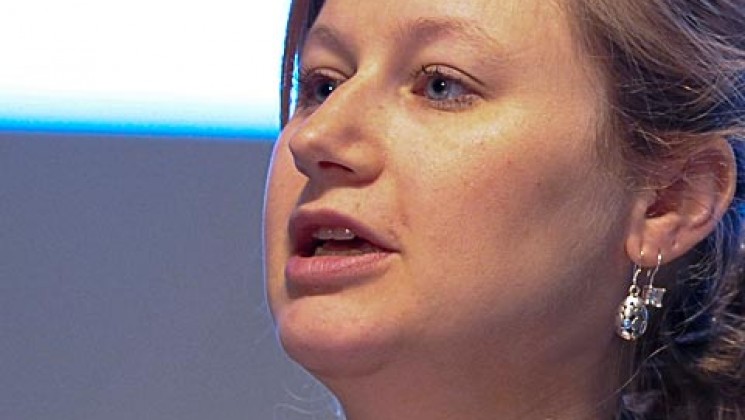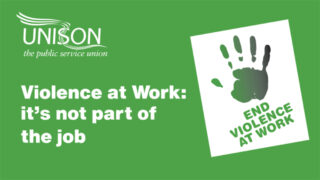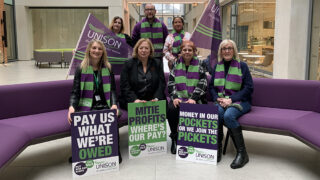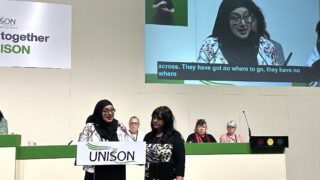The conference might be virtual, but the issues are absolutely real, and UNISON members have been making key contributions on a range of important subjects at this week’s TUC congress.
Josie Bird, the union’s president (pictured), addressed the general council’s statement on the need for a global recovery for working people.
Pointing out that the COVID-19 pandemic has “exposed the weaknesses inherent in the neoliberal economic model,” Ms Bird continued by saying that “over-stretched, under-regulated supply chains failed to respond to the demand for personal protective equipment and vital pharmaceuticals.
“Countries were forced to compete against each other in a global bidding war which saw the poorest and weakest countries in the Global South lose out.
“It also exposed the reality of those supply chains such as for rubber gloves, 60% of which come from Malaysia.
“Made in unsafe, unorganised factories, staffed by migrant workers on precarious contracts and at risk of being deported if they try to unionise.”
And the president noted that the pandemic has “also exposed leaders from the populist right. Trump, Johnson, Bolsonaro, Modi – men presiding over an incompetent and inadequate response to the challenge leading to millions of infections and hundreds of thousands of unnecessary deaths.”
UNISON’s junior vice president James Anthony voiced the union’s support for the importance of health and safety in the workplace, when he addressed congress in “this crazy online world”.
The pandemic had been “a frightening time”, he said, “for nurses like me, along with other health and care workers … as colleagues fell ill around us and too many lost their lives.”
But Mr Anthony pointed out that UNISON members in social care and nursing homes “faired far worse – too often an afterthought for policy makers, and with a fragmented and privatised system, broken long before COVID-19.”

James Anthony addressing the TUC congress
He continued by noting that, having worked as a care assistant, “this is highly skilled work – not low-skilled, like this government calls it – and it must be clear for all to see that we need a national care service, with national standards including improved pay and conditions for staff.”
Davena Rankin spoke of how a decade of austerity has left public services reeling – and is “precisely the fertile ground where individual and institutional racism flourish”.
Highlighting the impact of COVID-19 on Black lives, Ms Rankin spoke of a survey produced by the union that revealed how Black workers had experienced the pandemic – from a lack of PPE to a lack of personal risk assessments.
“No wonder infection spread as it did,” she continued.
“None of our demands to end racism at work are new. None of them are complicated. But they do take sustained effort and action.
“We need action in every local workplace. We need action by every employer, large and small.
“We demand much more from the bodies charged with regulation and enforcement.”
In his contribution, Graeme Ellis noted that it wasn’t just an algorithm that had affected working-class children’s educational chances: “inequality and unfairness is hard wired into our education system” and “Coronavirus just made this obvious for the first time.”
But such inequality is also “hardwired” into working life, with Black and disabled workers both twice as likely to die from COVID-19.
Mr Ellis said that, as a disabled worker himself, his employer had helped him work from home, but “many disabled workers were forced to continue to go into the workplace even though they could have done their job from home. Putting them at greater risk.
“Homeworking must be a reasonable adjustment for disabled people who want it.
“Government needs to grab this chance to radically re-write the algorithm and put equality for Black, disabled, LGBT+ and women workers at the heart of the new normal.”





